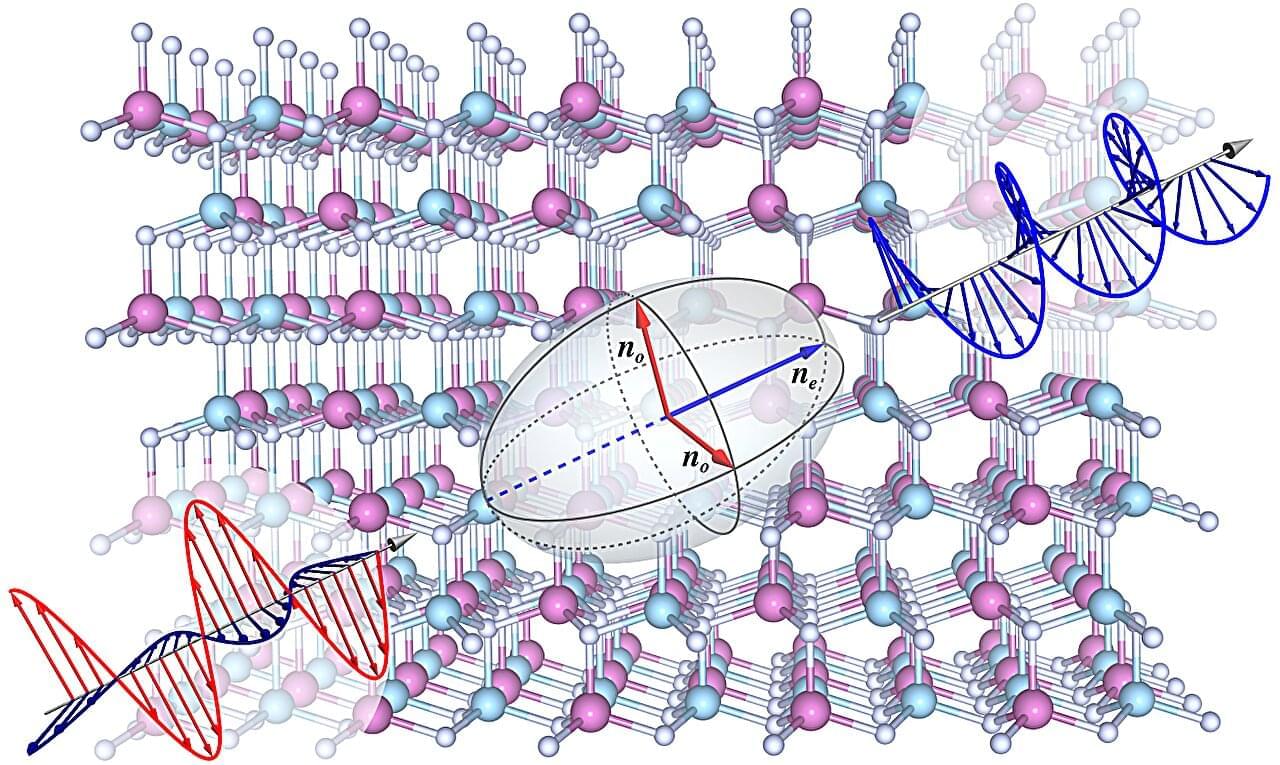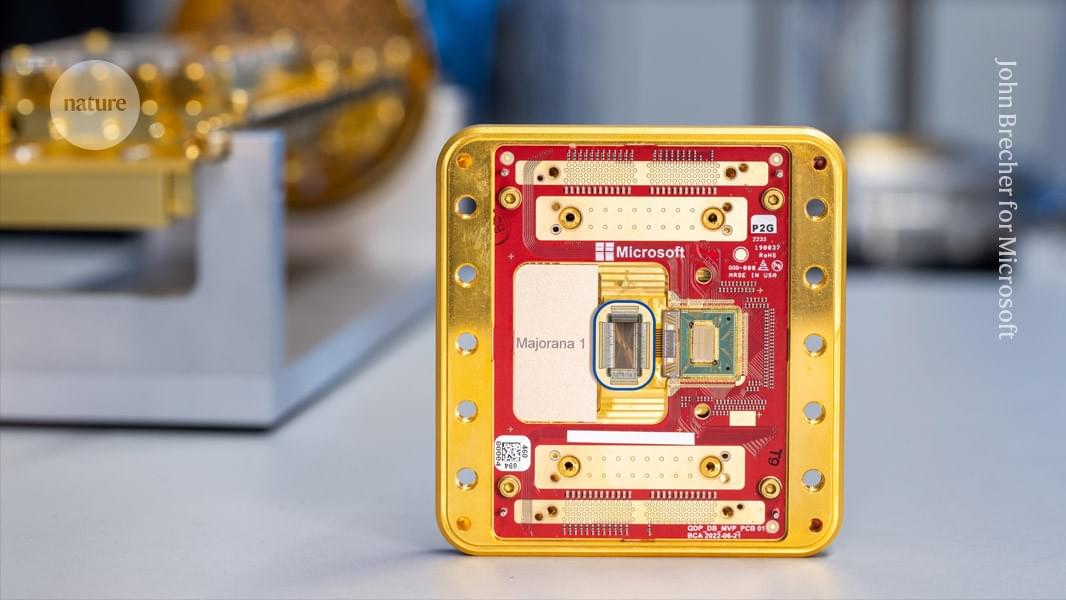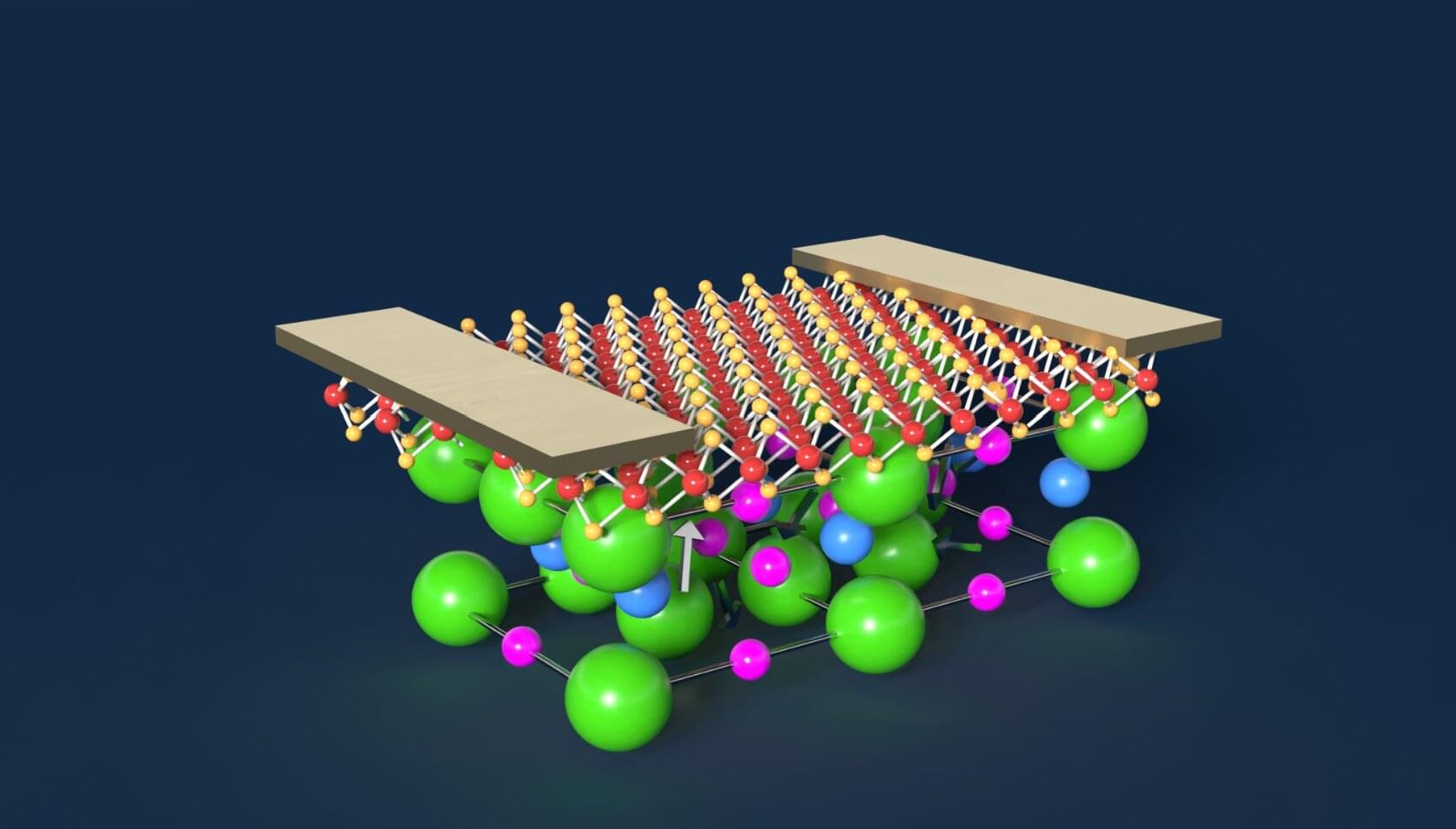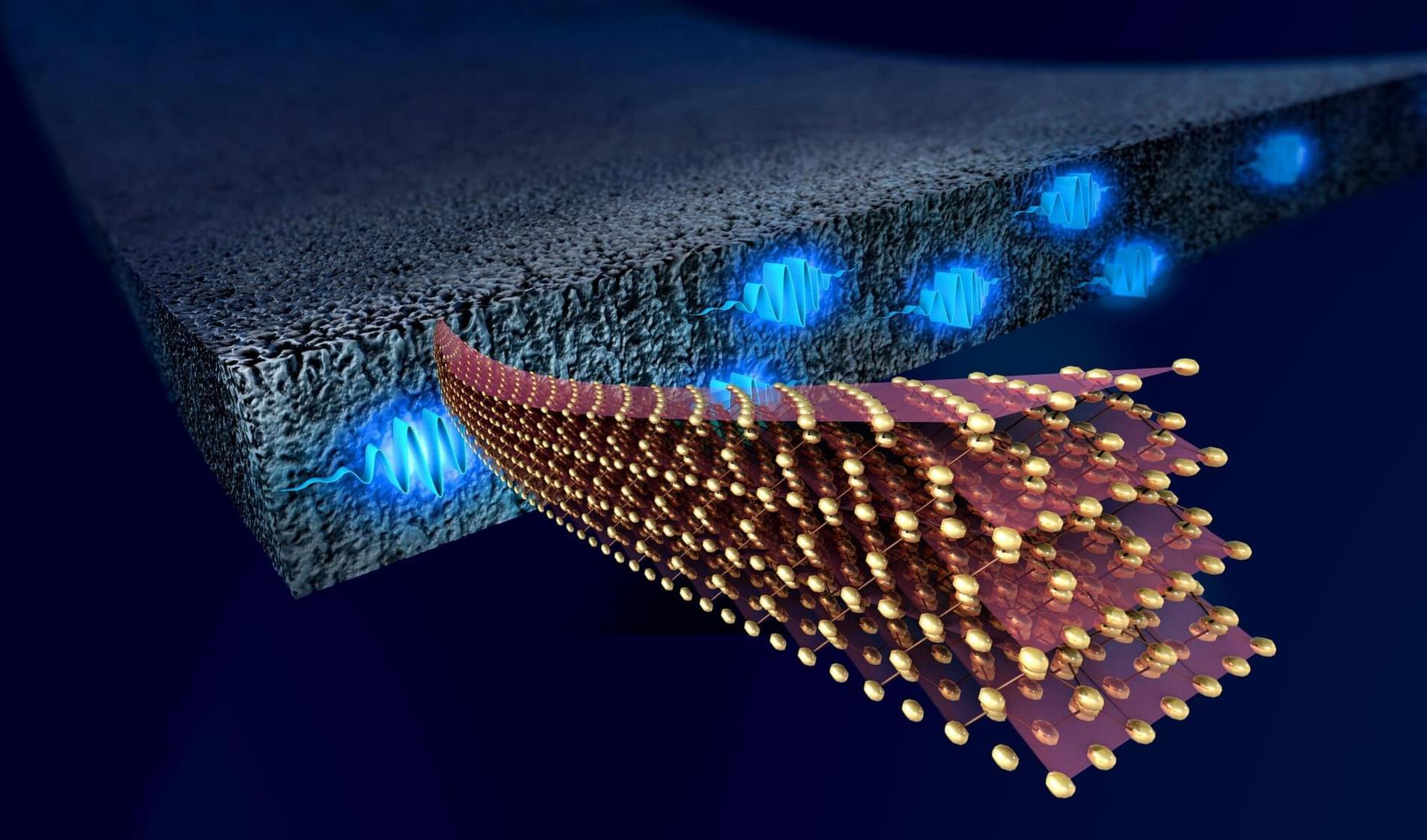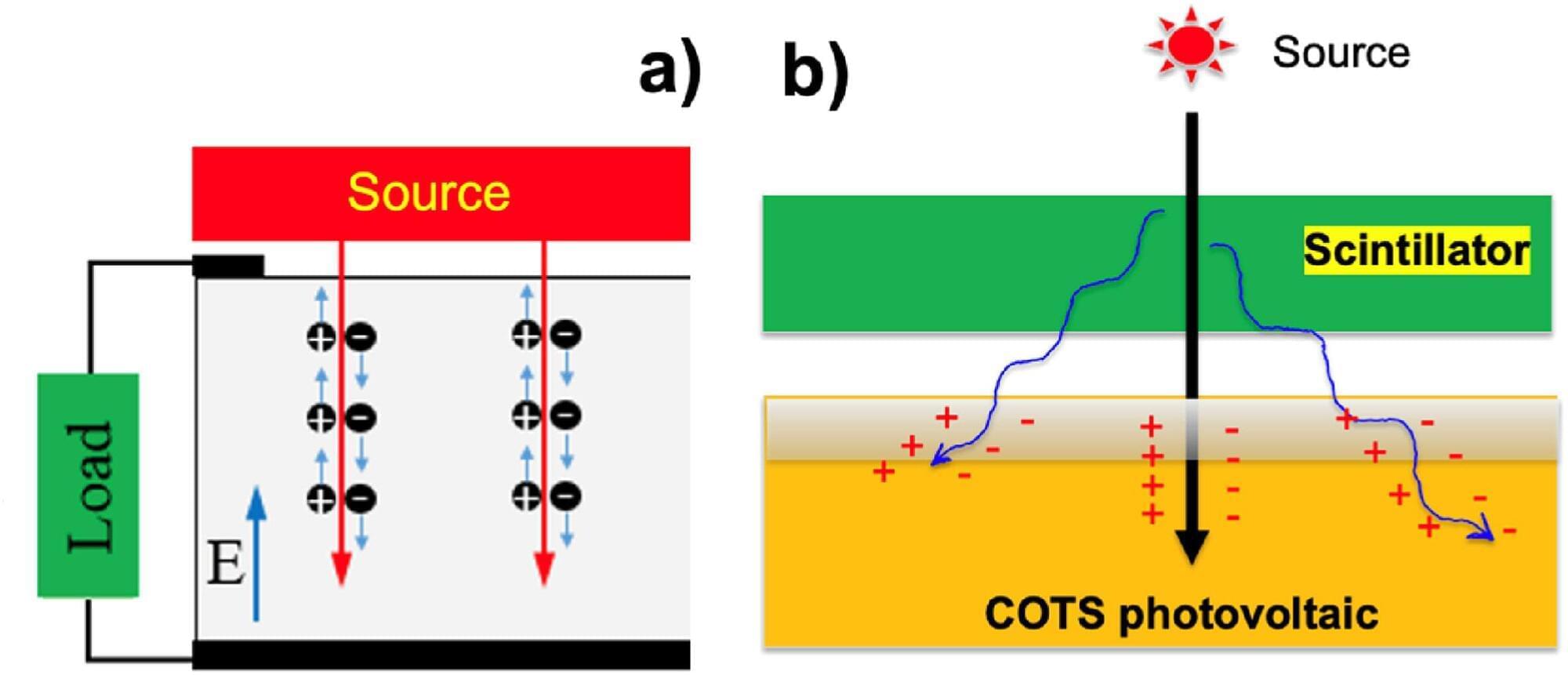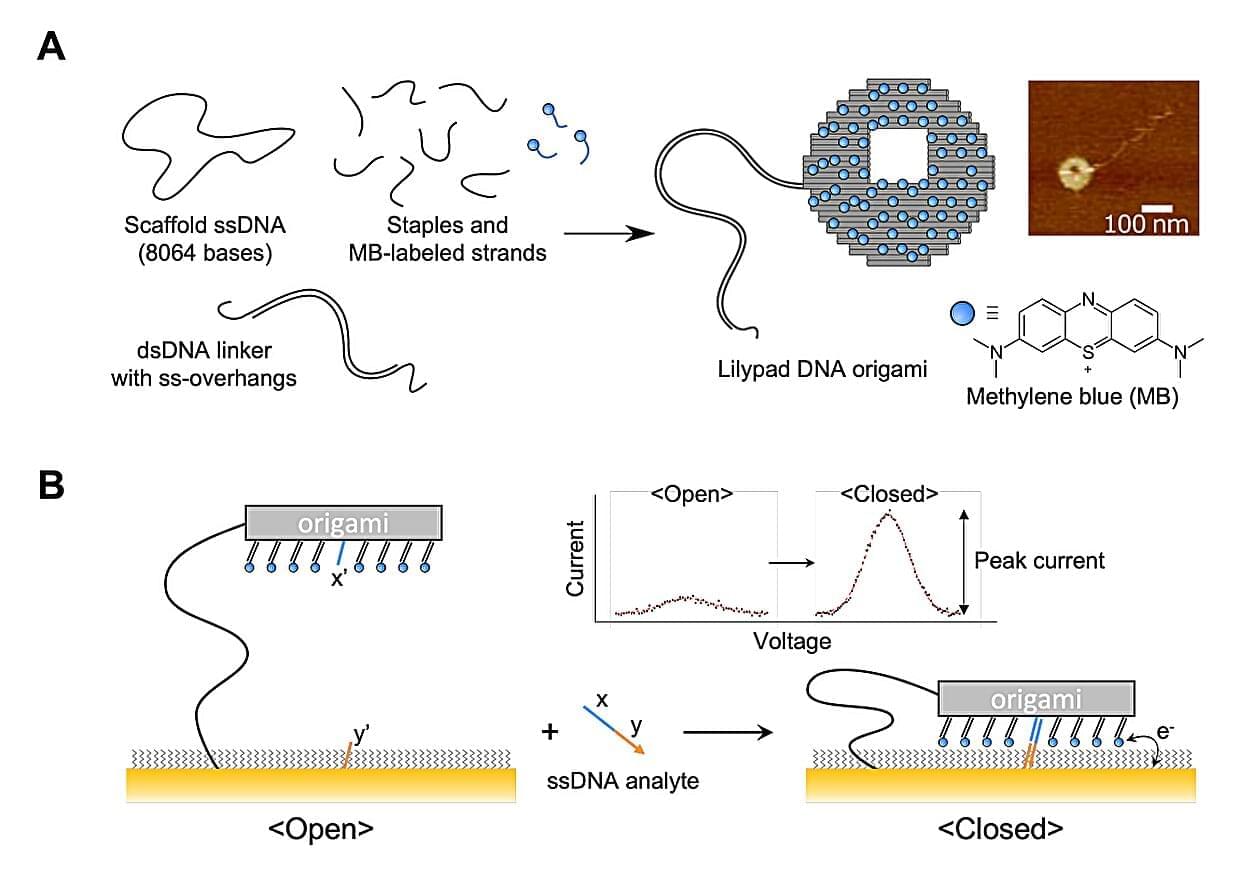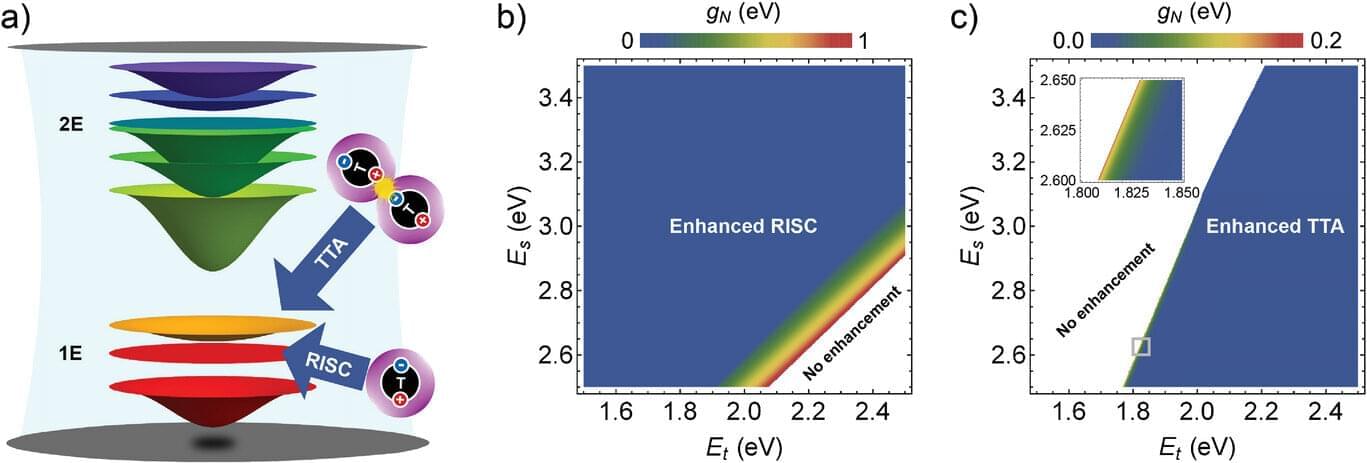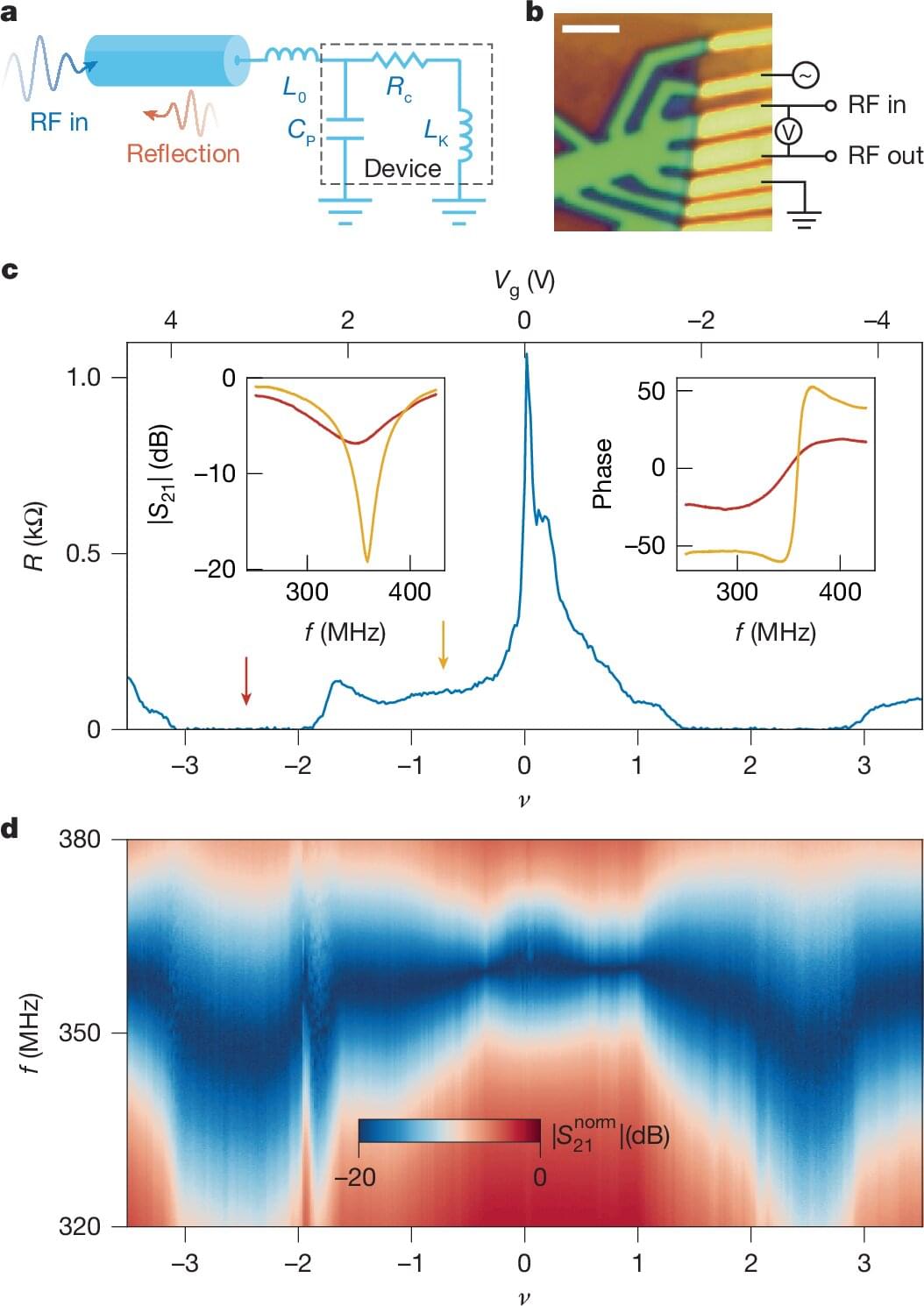From integrated photonics to quantum information science, the ability to control light with electric fields—a phenomenon known as the electro-optic effect—supports vital applications such as light modulation and frequency transduction. These components rely on nonlinear optical materials, in which light waves can be manipulated by applying electric fields.
Conventional nonlinear optical materials such as lithium niobate have a large electro-optic response but are hard to integrate with silicon devices. In the search for silicon-compatible materials, aluminum scandium nitride (AlScN), which had already been flagged as an excellent piezoelectric—referring to a material’s ability to generate electricity when pressure is applied, or to deform when an electric field is applied—has come to the fore. However, better control of its properties and means to enhance its electro-optic coefficients are still required.
Researchers in Chris Van de Walle’s computational materials group at UC Santa Barbara have now uncovered ways to achieve these goals. Their study, published in Applied Physics Letters, explains how adjusting the material’s atomic structure and composition can boost its performance. Strong electro-optic response requires a large concentration of scandium—but the specific arrangement of the scandium atoms within the AlN crystal lattice matters.
